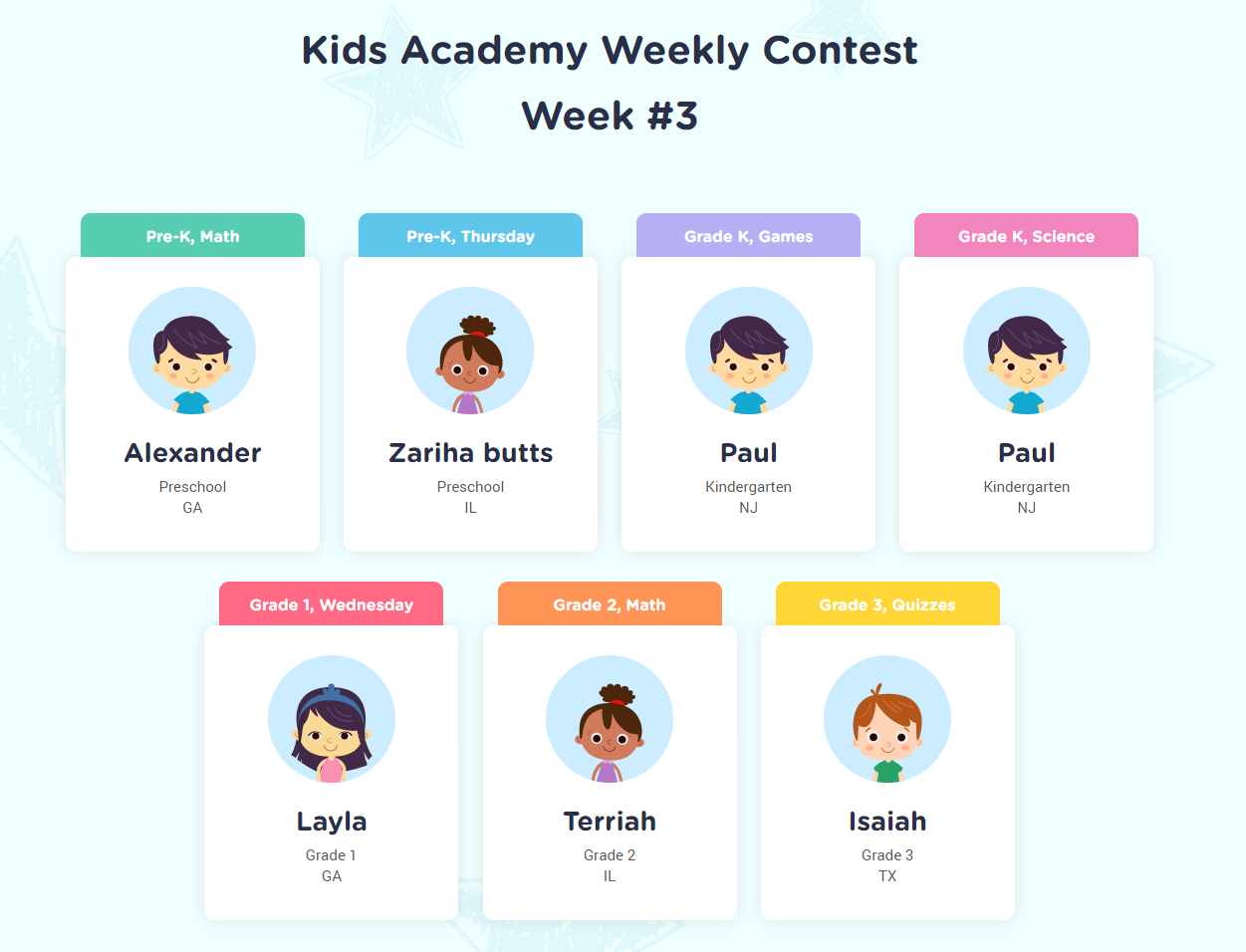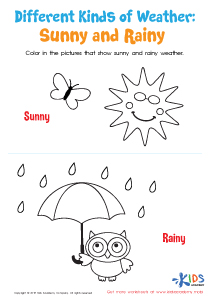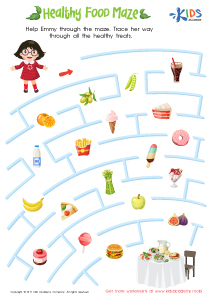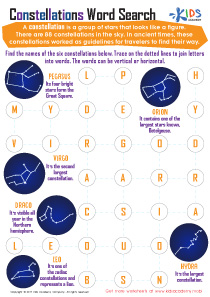Multiplication practice Easy Science Worksheets for Ages 6-8
5 filtered results
-
From - To
Discover our engaging "Multiplication Practice Easy Science Worksheets" designed specifically for children ages 6-8! These worksheets combine fun science concepts with essential multiplication skills, making learning a delightful experience. Perfect for young learners, each worksheet encourages practice through colorful illustrations and relatable examples, ensuring children grasp multiplication in a playful way. With a variety of exercises, your students will enhance their math fluency while exploring fascinating scientific topics. Ideal for classroom use or at-home reinforcement, these resources promote critical thinking and problem-solving. Explore our collection today to empower your child's education and elevate their understanding of both multiplication and science!
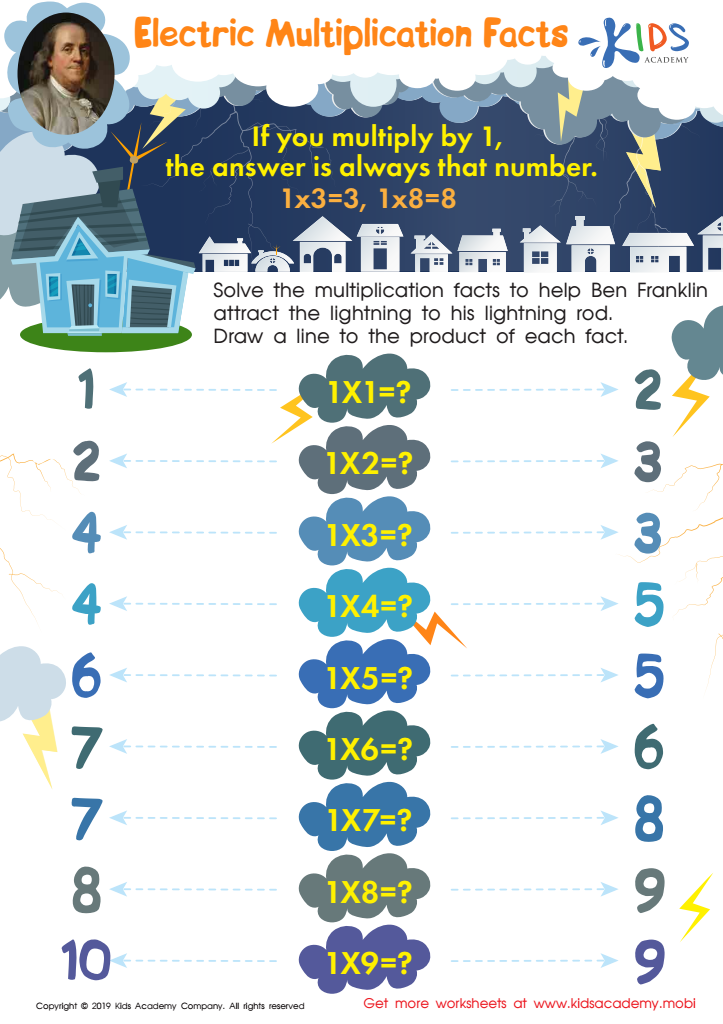

Electric Multiplication Facts Worksheet
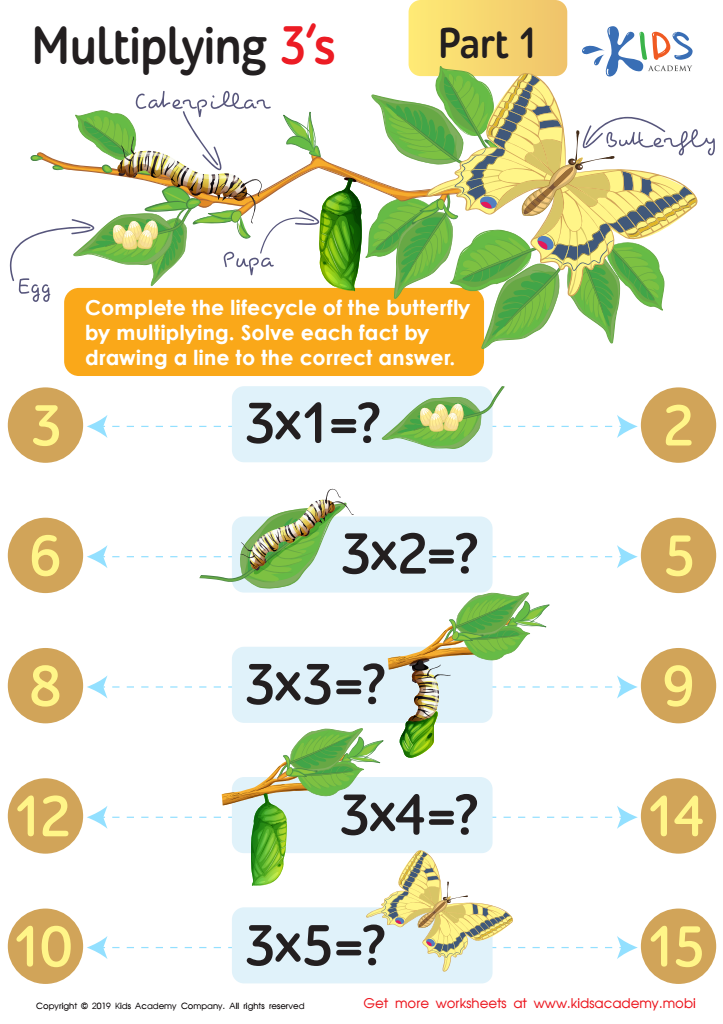

Multiplying 3’s Part 1 Worksheet
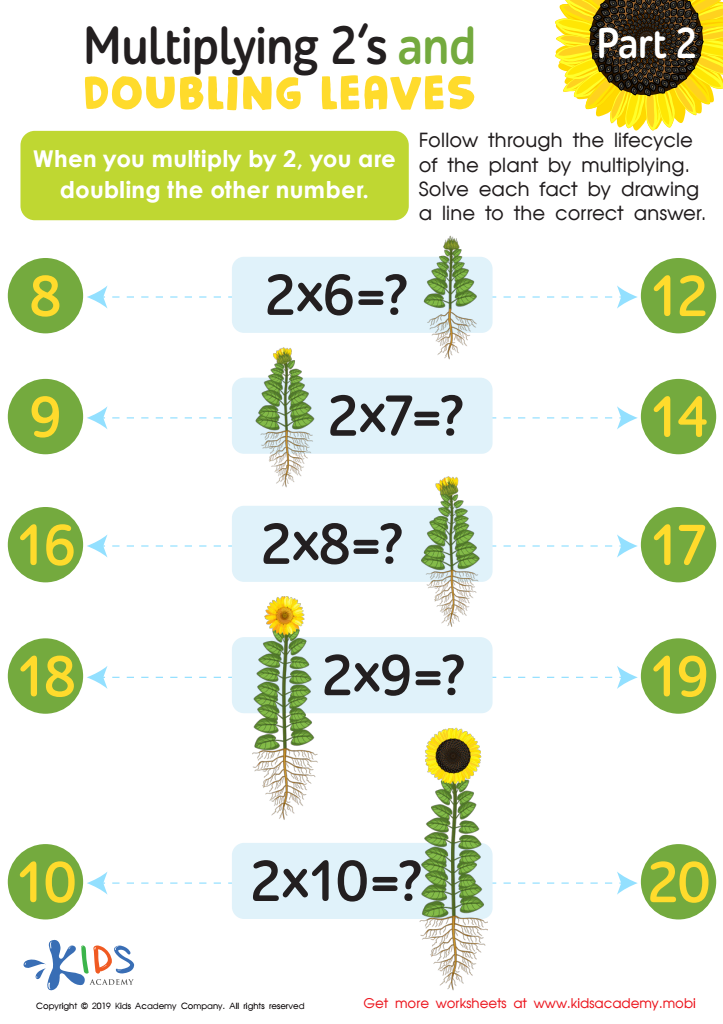

Multiplying 2’s and Doubling Leaves Part 2 Worksheet
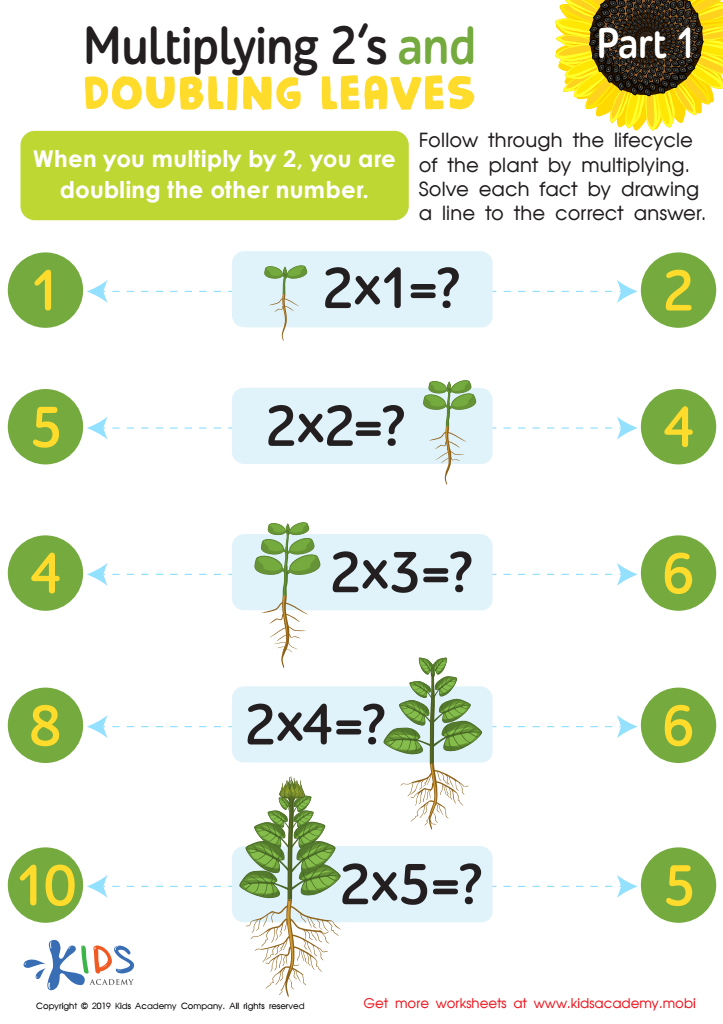

Multiplying 2’s and Doubling Leaves Part 1 Worksheet
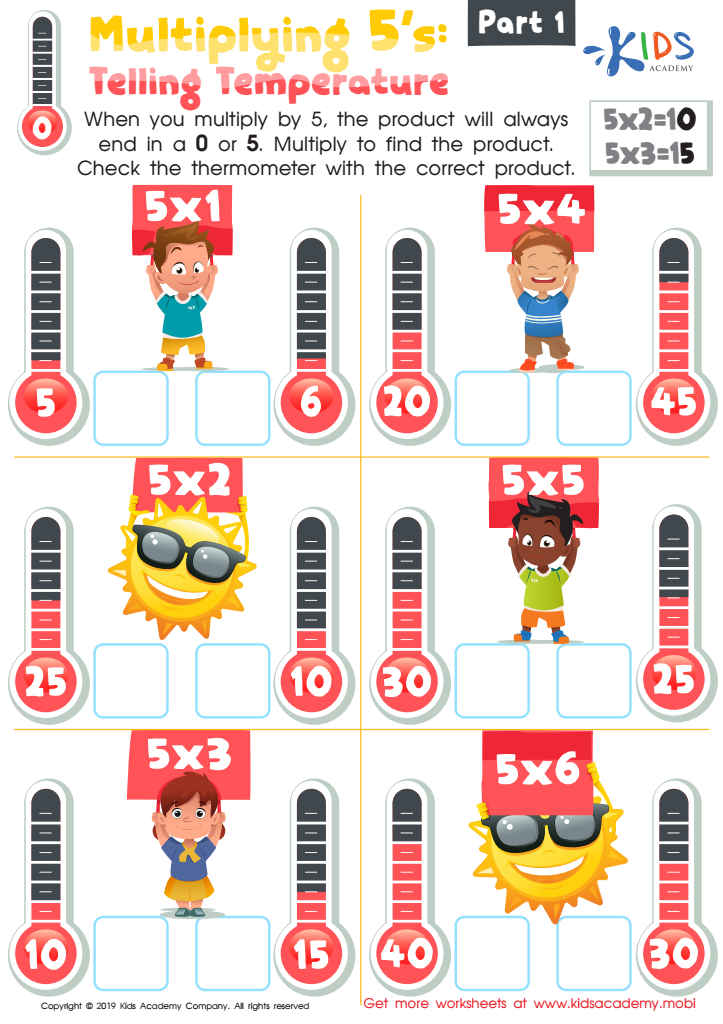

Multiplying 5’s: Telling Temperature Worksheet
Multiplication practice is crucial for children ages 6-8 as it lays the foundation for later mathematical understanding and problem-solving skills. At this age, children are developing their cognitive abilities and basic numeracy, and multiplication is a key component of their mathematical repertoire. Engaging in multiplication practice helps to enhance their memory, critical thinking, and concentration skills, which are all essential not only in mathematics but across various subjects.
By introducing multiplication through simple science concepts, such as counting groups of objects or understanding patterns, parents and teachers can make the subject relatable and engaging. Connecting multiplication to real-world applications enables children to see the relevance of math in everyday life, thus increasing their motivation and interest.
Moreover, regular practice during these formative years can foster confidence and reduce math anxiety, setting a positive tone for future learning. Incorporating fun, hands-on activities related to science can make this practice effective and enjoyable. When parents and teachers prioritize multiplication practice, they are investing in children’s academic success and developing their skills in problem-solving, logical reasoning, and perseverance—qualities that will serve them well in all future endeavors.
 Assign to My Students
Assign to My Students









